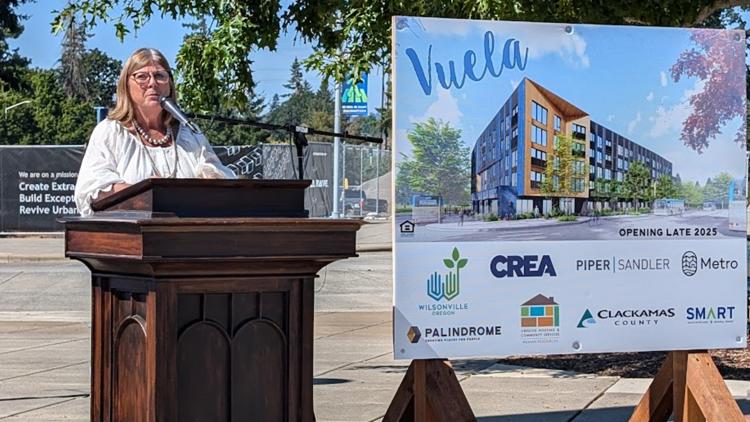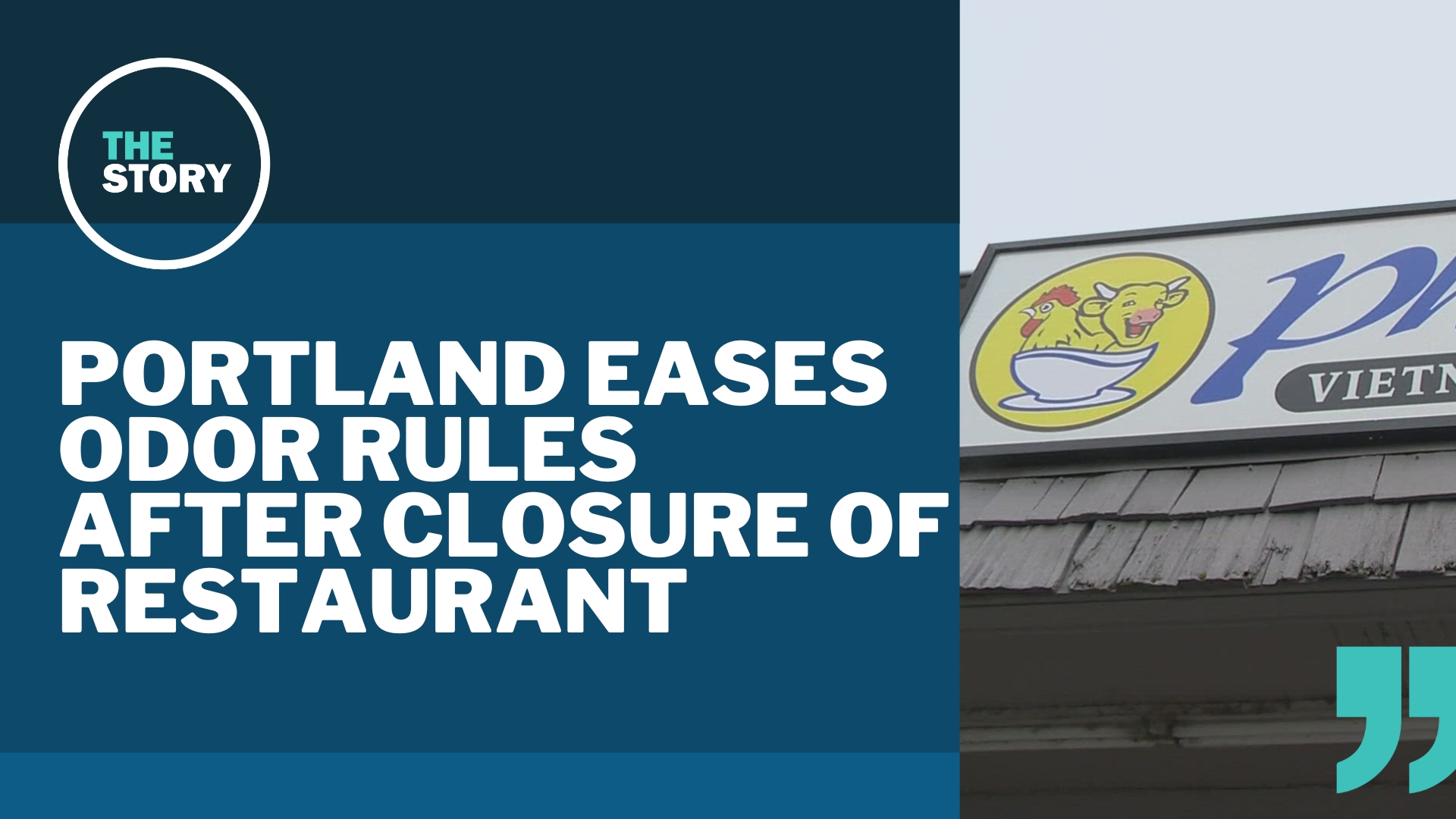PORTLAND, Ore. — A unique affordable housing project is on its way to Wilsonville with the groundbreaking of Vuela. The five-story apartment building will not just include 121 affordable homes, but also a coffee shop and food bank.
The new apartment building will replace the vacant lot next door to the Wilsonville Transit Station. Units will be restricted to those earning less than 80% of the area median income, which is currently around $66,100 a year for a single-household and $94,400 a year for a four-person household.
“We cannot begin to address our region’s housing and homelessness crisis without building affordable homes,” Metro Councilor Christine Lewis said. “Vuela will not only provide Wilsonville with a significant number of new apartments; it will offer a safe space to heal from trauma and the stability necessary for future residents to thrive.”
Around 20 of the apartments plan to be designated as permanent supportive housing, where residents will have access to a case manager and mental health services.
Along with apartments, the building will also have a coffee shop on its ground floor and a food bank and social services run by Wilsonville Community Sharing available to the public.
For residents, the building will also have a fitness room, playground, sports court and other onsite services provided by the Latino Network and Clackamas Women's Services.
With the groundbreaking of Vuela, Clackamas County Commissioner Martha Schrader said that the county is on track to build over 1,000 new affordable homes using affordable housing bonds.
Vuela, developed by Palindrome, is expected to cost around $57 million to develop. The majority of the project was funded through tax-exempt bonds and federal low-income housing tax credit issued by Oregon Housing and Community Services, along with $8 million from the voter-approved Metro Affordable Housing Bond.
Construction is expected to be completed in early 2026.



